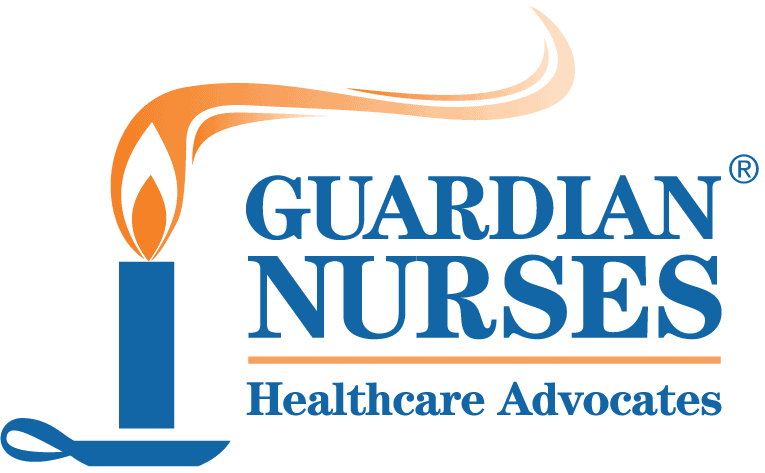After lengthy and complex hospital or rehab stays, follow-up care is exceedingly important. Unfortunately, it’s not uncommon for patients and their families to head home without a full understanding of what they are supposed to do next.
Guardian Nurses Mobile Care Coordinator Jennifer Donahue, RN, received a frantic phone call from the wife of a patient who was getting out of rehab after a stroke.
The patient had had a history of hypertension and high cholesterol, but he hadn’t followed up with a doctor, and hadn’t been on any medication for five years. He then suffered a stroke that left him unable to move his left side.
He was being discharged back to his home after three weeks in the hospital and then three weeks in a rehab center.
His wife was frightened, having been weighed down with tons of paperwork with discharge orders. She worried she wouldn’t be able to care for her husband’s tracheostomy tube, oxygen, and feeding tube on her own — all the supplies had arrived and home care was coming, but the patient was being discharged over the weekend and she would have to care for him by herself at first.
Nurse Donahue arrived to their home and they spent hours going through the paperwork together, reviewing the care instructions until the wife was comfortable, and organizing medications and supplies. The wife also learned how to use and care for the equipment.
Nurse Donahue also set up the necessary follow-up appointments, which proved to be a challenge — the patient’s primary care provider had retired and he would need a new doctor. PCPs usually require that new patients to come into the office for an examination before they can prescribe medicine or offer advice, but the patient couldn’t leave the house because a planned ramp hadn’t been built yet. Fortunately, Nurse Donahue was able to use her extensive network of experts (her colleagues at Guardian Nurses!) to locate a PCP who made house calls.
He was seen by the doctor on that Monday and began his physical, occupational, and speech therapy within a week of returning home. Nurse Donahue was also on hand to meet the doctor and each therapist as they started to work with the patient.
Over the following weeks, as the patient recovered, Nurse Donahue and the couple spoke almost daily.
He’s now doing well, living independently, seeing his primary care provider and specialists regularly, and taking his medications.
Nurse Donahue’s Advice: Being discharged from the hospital or from a rehab is often a time of great anxiety for both patients and caregivers. Don’t be afraid to ask questions when you or your loved one is still in in the hospital. Ask as many as you need to ask until you have all the information you and you feel good about it. There’s no such thing as a stupid question or asking too many questions when it comes to your health.

